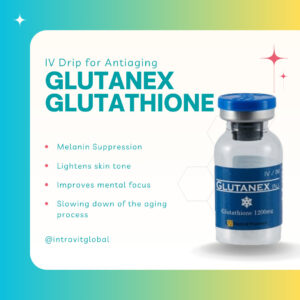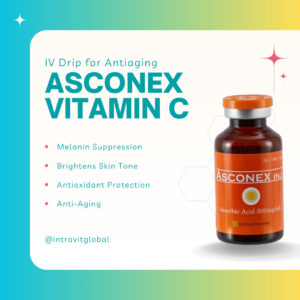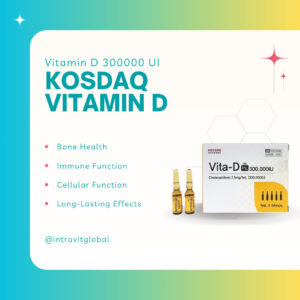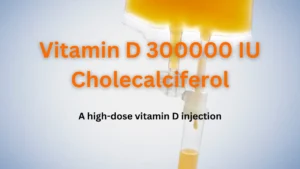Fighting Fatigue with Glutathione

Introduction to Fatigue and Its Impact on Life
Fatigue isn’t just about feeling tired after a long day—it’s a constant, overwhelming lack of energy that affects your physical and mental well-being. For many, fatigue can disrupt daily life, hinder productivity, and even lead to emotional issues like anxiety or depression.
What is Fatigue?
Fatigue is a persistent feeling of exhaustion that doesn’t go away even after rest. It can be physical, where the body feels heavy and drained, or mental, where concentration and focus become difficult. Fatigue is often misunderstood as simply being “tired,” but it goes much deeper, affecting every aspect of life.
Common Causes of Fatigue
Fatigue can arise from a variety of reasons:
- Poor sleep quality or insomnia
- Nutritional deficiencies
- Chronic stress
- Medical conditions like anemia, hypothyroidism, or fibromyalgia
- Accumulated oxidative stress at the cellular level
When these factors combine, the body’s natural energy production suffers, leading to prolonged periods of exhaustion.
Why Chronic Fatigue Needs Attention
Chronic fatigue is more than an inconvenience—it’s a signal that your body’s systems aren’t functioning optimally. Left untreated, it can snowball into more severe health problems, such as adrenal fatigue or immune dysfunction. Recognizing and addressing fatigue early is key to reclaiming energy and vitality.
Glutathione: The Master Antioxidant
What is Glutathione?
Glutathione is a powerful antioxidant produced naturally in the body. Made up of three amino acids—glutamine, cysteine, and glycine—glutathione is often called the “master antioxidant” due to its role in protecting cells from damage caused by oxidative stress.
Role of Glutathione in the Body
Glutathione serves several critical functions:
- Neutralizing free radicals to protect cells from damage
- Supporting the liver’s detoxification processes
- Regenerating other antioxidants like Vitamin C and E
Most importantly, glutathione plays a pivotal role in cellular energy production, which directly impacts how energized or fatigued you feel.
How Glutathione Affects Energy Levels
At the cellular level, energy is produced in the mitochondria. Glutathione helps maintain mitochondrial function by reducing oxidative damage and ensuring efficient energy production. Low levels of glutathione can impair mitochondrial activity, leading to fatigue.
Benefits of Glutathione for Fighting Fatigue
Boosting Cellular Energy Production
When your body is under constant stress—whether from poor diet, lack of sleep, or illness—your cells struggle to produce energy. Glutathione combats this by:
- Supporting the mitochondria to generate ATP (the body’s energy currency)
- Protecting cells from oxidative damage, which drains energy reserves
This boost in cellular efficiency translates to higher energy levels and less fatigue.
Detoxification and Reduced Oxidative Stress
One of glutathione’s primary roles is to detoxify the body. It binds to toxins, heavy metals, and harmful chemicals, flushing them out through the liver. By reducing the toxic load, your body can focus on energy production rather than waste management.
Enhanced Mental Clarity and Focus
Fatigue often clouds the mind, making it hard to concentrate or stay motivated. Glutathione’s antioxidant properties support brain health by reducing oxidative stress in the brain, improving mental clarity, and enhancing cognitive performance.
IV Therapy for Energy in the UK
What is IV Glutathione Therapy?
IV therapy involves delivering glutathione directly into your bloodstream through an intravenous drip. This method bypasses the digestive system, ensuring 100% absorption and faster results compared to oral supplements.
Why IV Therapy is More Effective than Oral Supplements
Many oral glutathione supplements are broken down in the stomach before they can be absorbed. IV therapy avoids this issue, making it an excellent choice for those struggling with severe fatigue. Benefits include:
- Immediate energy boost
- Improved detoxification
- Long-lasting effects when done regularly
Popular Clinics in the UK Offering IV Glutathione
Several clinics across the UK specialize in IV therapy for energy and fatigue management. Look for reputable providers in cities like London, Manchester, and Birmingham that offer customized treatments.
How to Incorporate Glutathione into Your Routine
Dietary Sources of Glutathione
While your body produces glutathione naturally, you can support its production through diet. Foods rich in glutathione include:
- Spinach and kale
- Broccoli and Brussels sprouts
- Avocados
- Garlic and onions
Eating a balanced diet with these foods can help maintain optimal glutathione levels.
Supplements and Their Effectiveness
If dietary changes aren’t enough, supplements like liposomal glutathione or NAC (N-acetyl cysteine, a precursor to glutathione) can help. While not as effective as IV therapy, they can still provide noticeable benefits for mild fatigue.
Lifestyle Tips to Boost Natural Glutathione Levels
To maximize your body’s glutathione production:
- Get enough sleep (7–9 hours per night)
- Exercise regularly to stimulate antioxidant production
- Reduce stress through meditation or yoga
These habits work synergistically with glutathione supplementation or therapy to fight fatigue.
Is Glutathione Safe for Everyone?
Side Effects of Glutathione
Glutathione is generally considered safe when taken in appropriate doses, especially through IV therapy administered by qualified professionals. However, minor side effects can occasionally occur, such as:
- Nausea or upset stomach
- Redness or irritation at the injection site (for IV therapy)
- Temporary headaches or dizziness
These effects are rare and often resolve quickly.
Who Should Avoid Glutathione Treatments?
While glutathione therapy is safe for most people, certain individuals should exercise caution:
- Pregnant or breastfeeding women (due to limited research on safety)
- People with sulfur allergies, as glutathione contains sulfur
- Those undergoing chemotherapy or radiation, as glutathione might interfere with treatment effectiveness
If you have underlying health conditions, it’s always best to consult a healthcare provider before starting glutathione therapy.
The Science Behind Glutathione and Fatigue
Research Supporting Glutathione’s Benefits
Several studies highlight glutathione’s role in combating fatigue. Research has shown that glutathione supports mitochondrial function, enhances detoxification, and reduces oxidative stress, all of which are crucial for maintaining energy levels.
For example, a study published in the Journal of Clinical Nutrition found that higher glutathione levels were associated with improved energy and reduced markers of fatigue in participants with chronic fatigue syndrome.
Studies on IV Therapy for Chronic Fatigue
IV glutathione therapy has gained traction in the medical community for its rapid results. A clinical trial conducted in the UK demonstrated that patients with chronic fatigue syndrome experienced significant energy improvements after a series of IV glutathione treatments. These findings reinforce the importance of glutathione as a cornerstone of fatigue management.
Long-Term Benefits of Glutathione for Energy
Maintaining Optimal Energy Levels Over Time
When incorporated into a regular wellness routine, glutathione can provide lasting benefits. By supporting cellular health and reducing oxidative stress, it ensures your energy levels remain stable even during periods of physical or emotional strain.
Benefits for Immune Health
Chronic fatigue often weakens the immune system, leaving you more vulnerable to infections. Glutathione boosts immune cell function, helping your body ward off illnesses more effectively.
Anti-Aging Effects of Glutathione
Fatigue isn’t just about feeling tired—it also accelerates aging. Glutathione combats the root causes of aging, such as oxidative stress and inflammation, keeping you feeling youthful and energized for years to come.
Conclusion
Fatigue doesn’t have to be a permanent part of your life. With the help of glutathione, you can restore your energy levels, improve mental clarity, and support your overall health. Whether you choose dietary changes, supplements, or IV therapy in the UK, glutathione offers a safe and effective solution to combat fatigue at its core. So, take the first step towards a more vibrant, energetic life today.
FAQs
1. What is the best way to take Glutathione for fatigue?
The most effective method is IV therapy, as it delivers glutathione directly into your bloodstream for maximum absorption. Supplements and dietary changes can also help but may take longer to show results.
2. How often should I get Glutathione IV therapy?
Most individuals benefit from weekly or bi-weekly sessions, but your healthcare provider can recommend a schedule based on your specific needs and energy levels.
3. Are there natural ways to increase Glutathione levels?
Yes! Eating foods rich in sulfur, such as garlic, onions, and cruciferous vegetables, can boost glutathione production. Regular exercise and stress reduction also help.
4. Is IV Glutathione available in the UK?
Absolutely. Many wellness clinics in the UK, particularly in cities like London and Manchester, offer IV glutathione therapy for energy and fatigue management.
5. Can Glutathione help with other health issues besides fatigue?
Yes, glutathione supports liver detoxification, boosts immune function, and has anti-aging properties. It is also used to improve skin health and treat conditions like chronic inflammation.
Fighting Fatigue with Glutathione
-
Vitamin Drips
Glutanex Glutathione 1200mg IV Drip for Antiaging, Melanin Suppression, Antioxidant Skin Brightness Benefits
£20.00 – £120.00 Select options This product has multiple variants. The options may be chosen on the product pageRated 0 out of 5 -
Vitamin Drips
Asconex Vitamin C (Ascorbic Acid) IV Drip for Antiaging, Melanin Suppression, Antioxidant and Skin Brightness Benefits
£10.00 – £70.00 Select options This product has multiple variants. The options may be chosen on the product pageRated 0 out of 5 -
Vitamin Drips
Kosdaq Vitamin D 300000 IU Cholecalciferol per vial box of 10 ampoules
£20.00 – £140.00 Select options This product has multiple variants. The options may be chosen on the product pageRated 0 out of 5
Checkout our Facebook Page and leave your review about our Health Care Products.






